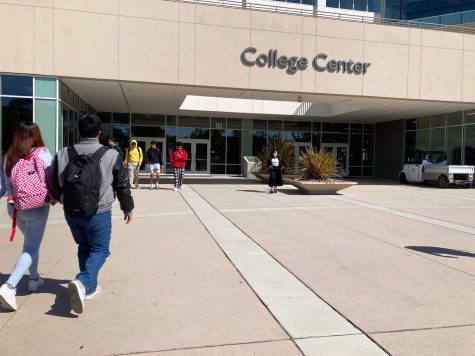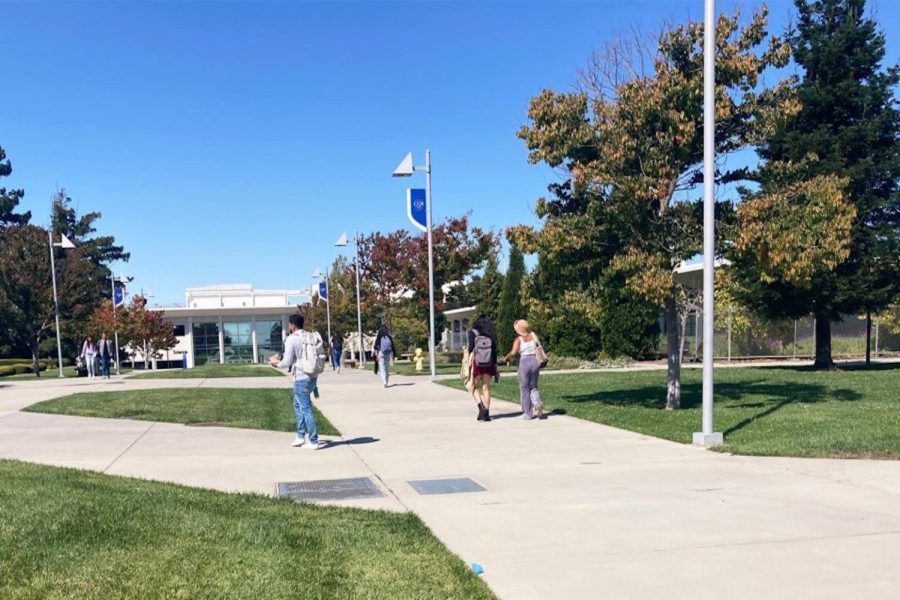Gov. Gavin Newsom signed Senate Bill (SB) 893, making community college free for most San Mateo County residents.
The bill was passed on Sept. 30, 2022, and is set to take effect in spring 2023 with the start of the next school semester.
Funded by local taxpayer money, SB 893 enables the San Mateo County Community College District (SMCCCD) to waive tuition fees, covering all costs of attendance for low-income students, undocumented students, and any students in need of financial support.
“This will give more people the opportunity to have an education, which is what we need,” said Andrea Morales, president of the Associated Students of College of San Mateo (ASCSM).
In the past few years, enrollment rates for community colleges have declined sharply, primarily due to financial struggles related to COVID-19. According to Morales, the College of San Mateo (CSM) alone lost around 13% of its students during the pandemic.
Tuition fees currently stand at $46 per unit, equating to $138 for most year-long classes. With the help of SB 893, not only will all tuition fees be waived, but the colleges will cover all additional costs of attendance. This includes textbooks, housing, parking, transportation, and meals.
“We’ve already waived our parking fees for students that drive to campus,” SMCCCD Chancellor Michael Claire said.
Free parking for all students is the first of many steps the district is taking to make community college more affordable.
“If you’re going to school full time, that means you don’t have the opportunity to make as much money by working. Overall, going to college, even if tuition is free, is very expensive,” said Joshua Moon-Johnson, the vice president of Student Services at the College of San Mateo.

SB 893 is monumental for many students who previously might not have had the support to allow them to attend college. The bill provides a resource for students who aren’t eligible for other financial assistance programs within community colleges, such as the Promise Student Scholarship for first-generation students taking classes full-time.
There are about 2,000 students enrolled in the Promise Scholars Program, according to Claire, totaling around $3.2 million of support provided. The Promise Student Scholarship program will remain unaffected, serving as another financial aid system alongside SB 893.
“We’re fortunate to live in an area where we get a substantial amount of revenues from property taxes, and we believe we can essentially absorb the cost of the last enrollment fees. For this next year, we put away $6 million for this program,” Claire said.
Through all these financial support programs and the millions of dollars being set aside to help students, SMCCCD strives to restore the original purpose of community colleges.
Many people remember when community college was completely free not too long ago.
“I went to Cañada College, and community college was free. I did pay for books, but everything else was free. Parking was free, and my enrollment fees were free. It was great. I graduated with zero student debt, and I got a great job right out of college. I’m hoping that students are able to have the same experiences as the students in my generation,” Claire said.
The district sought support for students because of the unique challenges of living in the bay area.
“The federal policies around financial support don’t fully take into account how expensive it is to live in San Mateo County,” Moon-Johnson said. “The important thing about SB 893 is it’s specific to San Mateo County, which has the highest kind of cost of living in the United States.”
SB 893 is only a pilot, meaning in five years, it will expire. By that time, the SMCCCD hopes to not only renew the bill but influence other colleges, districts, and even states to follow in their footsteps in making education more affordable and widely accessible.
“When you go to public schools, you see the difference between a student who comes from a family with financial stability and an undocumented student or low-income student who, after high school, just doesn’t go to college because they are afraid that they might not make it,” said Morales, who is a first-generation college student herself. “This will encourage students to have that hope.”
























